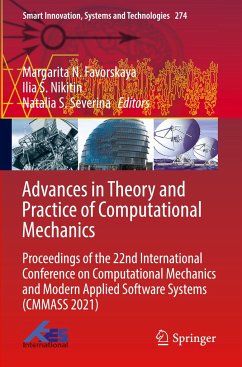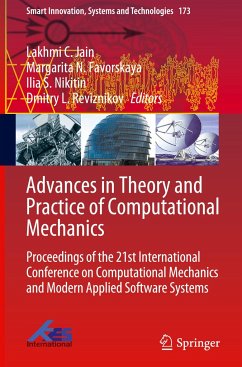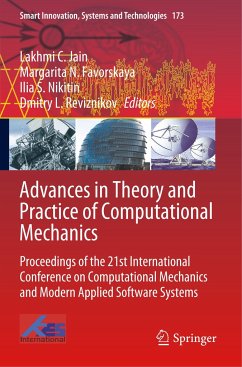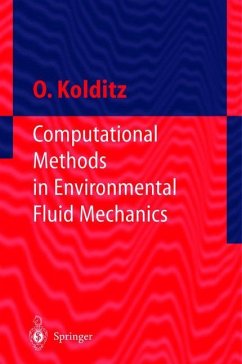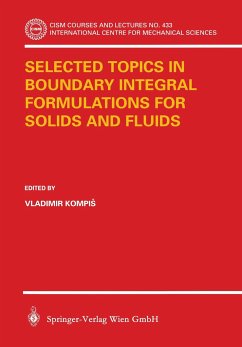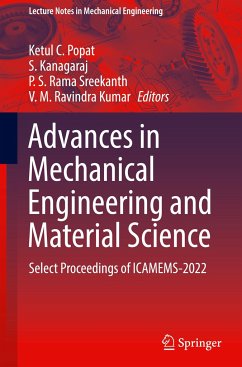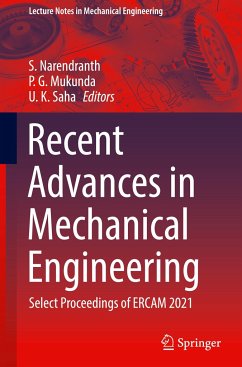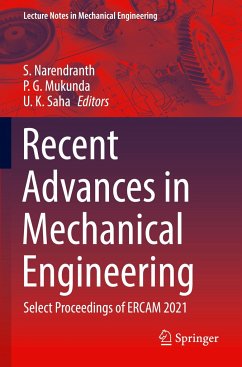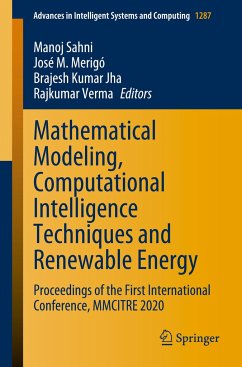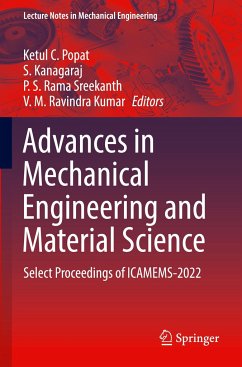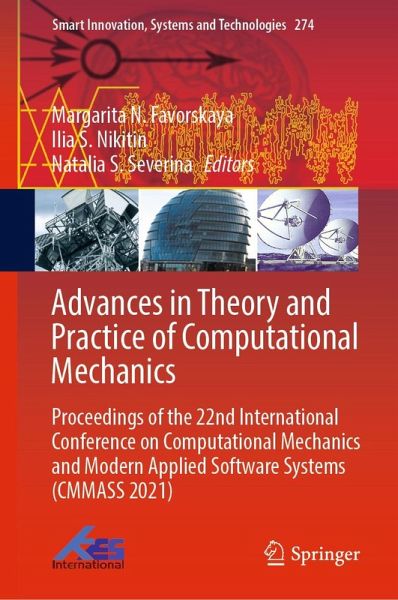
Advances in Theory and Practice of Computational Mechanics
Proceedings of the 22nd International Conference on Computational Mechanics and Modern Applied Software Systems (CMMASS 2021)
Herausgegeben: Favorskaya, Margarita N.; Nikitin, Ilia S.; Severina, Natalia S.

PAYBACK Punkte
87 °P sammeln!
This book is a collection of peer-reviewed best selected research papers presented at 22nd International Conference on Computational Mechanics and Modern Applied Software Systems (CMMASS 2021), held at the Alushta Health and Educational Center, The Republic of Crimea, during 4-13 September 2021. The proceedings is dedicated to solving the real-world problems of applied mechanics using smart computational technology. Physical and mathematical models, numerical methods, computational algorithms and software complexes are discussed, which allow to carry out high-precision mathematical modelling i...
This book is a collection of peer-reviewed best selected research papers presented at 22nd International Conference on Computational Mechanics and Modern Applied Software Systems (CMMASS 2021), held at the Alushta Health and Educational Center, The Republic of Crimea, during 4-13 September 2021. The proceedings is dedicated to solving the real-world problems of applied mechanics using smart computational technology. Physical and mathematical models, numerical methods, computational algorithms and software complexes are discussed, which allow to carry out high-precision mathematical modelling in fluid, gas and plasma mechanics, in general mechanics, deformable solid mechanics, in strength, destruction and safety of structures, etc. Smart technologies and software systems that provide effective solutions to the problems at various multi scale-levels are considered. Special attention is paid to the training of highly qualified specialists for the aviation and space industry.



